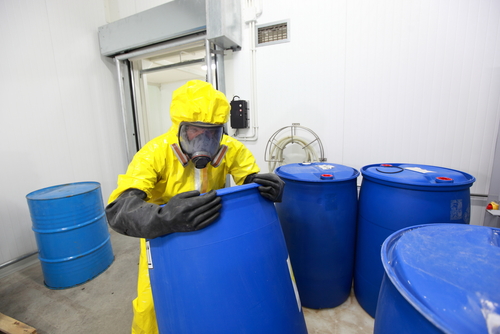
Level 2 Award in Food Safety in Catering (RQF)
Get qualified in food safety with our online course. Learn about your responsibilities as a food handler, cleanliness in the work area, and the importance of food safety management systems.
Overview
A fully online Ofqual-recognised qualification designed for those working in the food industry, with additional material designed for those working in catering. This delivers the complete training package of online study, practice questions, an invigilated assessment and an official certificate to those that pass this qualification.
More detail
Course syllabus
Module 1: Introduction to Food Hygiene
- Course Introduction
We begin with an introduction to the course, explaining its structure, providing an overview of the content, and outlining how the end-of-course assessment works.
- The Importance of Food Safety
This unit emphasises the importance of food safety by discussing the potential risks of poor food hygiene to businesses and their customers.
- Common Terms Used in Food and Food Hygiene
This section introduces key terminology used in food and food hygiene, providing a foundation for understanding concepts discussed later in the course.
- Food Safety Procedures
An initial overview of food safety procedures that are implemented to ensure safe food handling and reduce the risk of contamination.
Module 2: Microbiological Contamination and Food Poisoning
- Types of Microbiological Contamination
This unit explores the different types of microbiological contamination that can cause food poisoning.
- The Food Poisoning Chain, Bacteria and Diseases and Reporting Illness
We continue by examining the causes of food poisoning through the food poisoning chain, including bacteria and associated diseases, and discuss the importance of reporting illness.
- High Risk Groups, Toxins and Your Responsibilities
This section discusses high-risk groups, bacterial toxins, and your personal responsibilities when working with food to prevent contamination.
Module 3: Personal and Work Area Hygiene
- The Importance of Personal Hygiene
This unit explains why maintaining good personal hygiene is crucial in the food industry and provides effective practices for food handlers.
- Work Area Hygiene
Here, we explore workplace hygiene, including legal requirements and the principles of designing a hygienic and efficient work area.
- The Importance of Cleaning
This section delves into cleaning and disinfection practices, offering guidance on how to work safely with cleaning chemicals to maintain a sanitary food environment.
Module 4: Keeping Food Products Safe
- Temperature and Time Control
This unit focuses on managing temperature and time, which are critical tools for controlling the risk of food poisoning.
- Food Delivery, Preservation, Storage and Disposal
We cover the full lifecycle of food management — from delivery and preservation to safe storage and disposal practices.
- Pest Control
This unit highlights the importance of pest control in food environments, outlining appropriate preventive measures to keep pests away from food storage and preparation areas.
Module 5: Food Safety Management and the Law
- Food Safety Management Systems and the Law
This unit explains the connection between food safety management systems and the legal framework that governs food hygiene.
- Food Safety Enforcement
We examine what happens when the law gets involved, focusing on due diligence, enforcement procedures, and your legal responsibilities as a food handler.
Module 6: Exam Preparation
- Exam Preparation
This final unit outlines how the end-of-course assessment works, provides revision tips, and offers a recap of key course content to help you prepare effectively.
Obtaining your certificate
You will need to pass a multiple-choice exam at the end of the course in order to gain your accreditation. Once passed, we will send your official certificate by email.
